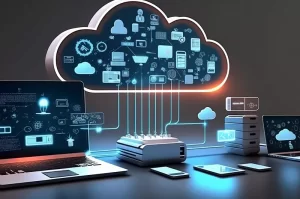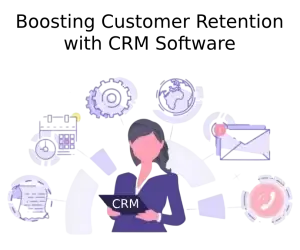The dynamic transformation in UAE real estate is on its course, considering over 10 million are already dwelling in this dynamic country, and it continues without any sign of shrinkage. In bustling cities, Dubai and Abu Dhabi come out with new opportunities opening for innovative housing incentives while the visa reforms keep up with the intention of alluring foreign investors. With the demand for bigger homes and luxurious facilities going up, a metamorphosis is evident—global trends are taking root here, too.
With rapid growth comes a challenge: complexity. This means the scale of growth overwhelmed each and every real estate business with a growing number of properties, tenants, and contracts to handle amongst others. Growth often becomes overwhelming when manual processes or even disparate systems try to hold everything together. Mistakes are inevitable; efficiency drops; and time is wasted preciously.
That’s where Real Estate ERP steps in. Now, imagine that all these critical functions-property tracking, lease management, and invoicing-are combined into one seamless solution. Just such a solution is available in an ERP system like Edge. Automation and process integration enable enterprises to iron out the wrinkles in operations, cut down on expensive mistakes, and make quicker decisions with more relevant data.
This is the key to outpacing the changes that come with the ever-shifting market. It is in embracing such advanced tools that the difference exists between merely surviving and thriving for the players in this very competitive landscape, with the UAE’s real estate industry boom ongoing.
Key Features of a Real Estate ERP System
Unit Management and Tracking
In any real estate business, the core revolves around property. Real Estate ERP software enables you to manage your units effectively and maintains their record, be it residential apartments, villas, or commercial property. It also offers you the facility of storing and retrieving important information regarding the amenity, lease condition, and availability. This is enabled through the system with advanced search functionality to help your staff filter the unit on multiple criteria to easily identify the correct property for your clients. It will further track vacant units and those that are occupied to assist in managing your resources and promptly responding to market demands.
Case Study 1: Smoothening Operations for a UAE Real Estate Firm
Among the leading real estate firms in Dubai was a company that decided to operate its ever-growing residential and commercial property portfolio on Edge ERP. Fragmented processes, especially regarding the management of lease agreements and invoicing, were a big headache to the company before the ERP system was implemented. This company rationalized its operations by reducing manual errors, improving lease tracking, and enhancing financial visibility after the implementation of the Edge ERP. This therefore resulted in a 20% increase in operational efficiency and also a 15% reduction in overdue payments.
Ease in Lease Management
Lease management can be uphill, mainly when markets move as fast as those in the UAE. It is prone to very expensive mistakes in tracking rental agreements, renewals, and payments without any system in place. Real Estate ERP simplifies lease management by automating the creation of contracts, renewal notifications, and tracking of the rental terms. In the system, all the crucial information can be stored in one place, such as rental amount, payment schedule, renewal dates, and many more so that nothing is missed. This also provides a system for uploading supporting documentation, printing completed contracts, and even partial payments. Setting this administrative function free via automation will, therefore, allow businesses to nurture better relationships with their clients.
Simplified Invoice and Cash Flow Management
Effective cash flow management lies at the heart of business success in general, not least in the real estate industry. Real Estate ERP automates the generation of invoices, the creation of customers’ accounts, and the maintenance of receipt records. It also allows the business to track outstanding balances, trace problem customers, and give an overview of their financial situation. It helps, therefore, in managing cash flows and financial forecasting. This will thus enable such technology to ensure timely collections of rent and lessen the headaches of late payments by automatically creating reminders for imminent payments.
Case Study 2: Customer Experience Enhancement for a Property Developer
The Abu Dhabi developer was experiencing some problems in communicating with the tenants and in property management. With the implementation of Edge ERP, all property details and tenant communications were put on one platform, hence enabling quick responses to their requests and more accurate dissemination of information. Because of this, the company witnessed a 25% increase in tenant satisfaction, while vacancies significantly dropped since tenants were willing to renew their leases due to better communication and service.
Centralized Data Management
Everything in real estate is all about speed and accuracy. The Real Estate ERP system will store all your property data, contracts, payment records, and client information in one secure place. This will centrally eradicate the need for disparate files and spreadsheets, thus ensuring that your team always has access to the latest information. It avails better data analysis to help in making informed decisions regarding pricing, property acquisition, and marketing strategies.
Benefits of a Real Estate ERP System
Efficiency and Productivity
One of the major benefits a Real Estate ERP system implementation can provide is increased operational efficiency. Automation of routine tasks, such as invoicing, lease management, and tracking properties, saves your team from wasting time on such tasks. In this way, employees can pay more attention to higher-value activities, including the acquisition of clients and building a relationship with them. Over time, this would result in higher productivity and smoother operations.
Improvement in customer and tenant satisfaction
In the competitive real estate market, customer satisfaction is of utmost importance. The ERP software will grant your team the ability to answer client inquiries much faster and more accurately. Quick access to property details, lease agreements, and history of payments guaranteed by the system will make sure that your team can provide the most timely information. This kind of transparency helps gain trust with clients and tenants, allowing for long-term relationships and higher levels of tenant retention.
Why Choose Edge ERP for Real Estate
Key Features of Edge ERP
Edge is specifically designed for real estate, with a set of tools that covers all aspects of property management: unit management, lease tracking, invoicing, and centralized data storage. What makes Edge unique is how easy it is to use, how features can be tailored to your needs, and how it seamlessly integrates into your current business process. That is why it can serve real estate businesses of any size-whether one manages a handful of properties or oversees a large portfolio.
Why Edge ERP is Ideal for the UAE Market
The UAE real estate market is unique in its way because of its local and international clients, different regulatory requirements, and constantly fluctuating market conditions. These particular needs are addressed by features within Edge ERP, including compliance with local laws right through to seamless interaction with international clients. Furthermore, localized support will be provided by Edge ERP to ensure that the UAE’s real estate businesses can reap full benefits from the system in driving efficiency to meet market demands.
Getting Started with Real Estate ERP
Implementation Process
Implementation of a Real Estate ERP system, such as Edge, requires a number of steps in planning and execution. It normally begins with system configuration, where the software is tailored to suit your business needs, followed by data migration, which is the transfer of property and tenant information from existing systems to the new platform. Lastly, after implementation, team members are trained on working in this ERP system. This ensures support in ensuring your system keeps working just like it should and makes those needed adjustments due to growth for your business.
Support and Training
With Edge ERP, support and training go a long way in having your team reap maximum benefits from the system. From installation and personalization to troubleshooting and updating, any problem arising will be dealt with by the support team. Besides, there are training sessions given so that your team feels at ease with the features available and can utilize the same in a productive manner.



